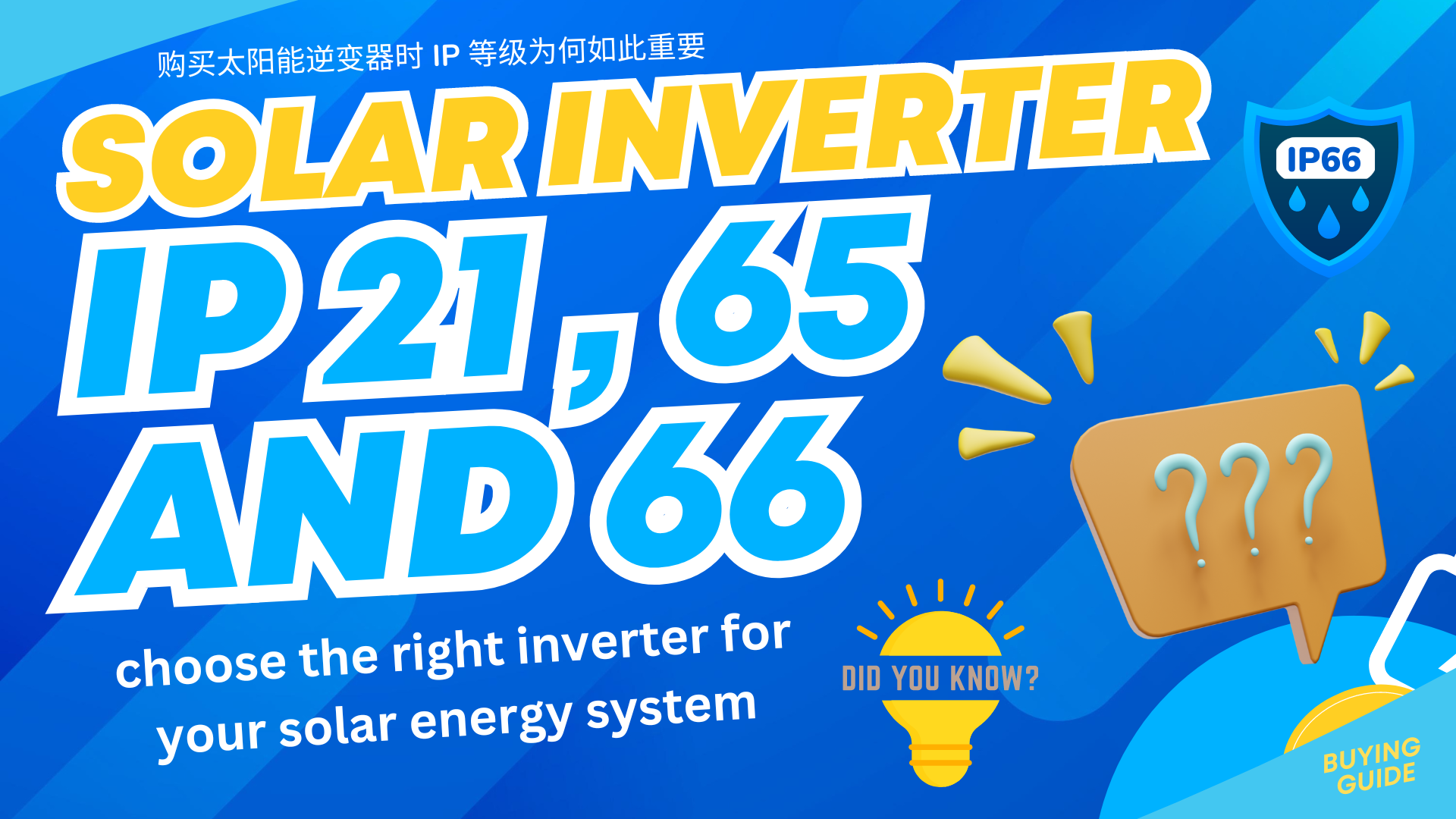Solar Inverter Buying Guide: The Difference Between IP21, IP65, and IP66

Choosing the perfect solar inverter for your home's solar energy system requires careful consideration. A critical factor is the inverter's ability to withstand the elements, influenced by its Ingress Protection (IP) rating. This blog post dives into the world of IP ratings, specifically focusing on the common classifications for solar inverters: IP21, IP65, and IP66.
Understanding IP Ratings
The IP rating system, established by the International Electrotechnical Commission (IEC), classifies electrical equipment's level of protection against solids and liquids. The two-digit code following the "IP" denotes the protection level:
- The first digit indicates protection against solid objects like dust (0-6, higher number signifying better protection).
- The second digit signifies protection against liquids (0-8, higher number indicating better resistance to water ingress).
IP21 Rating: Basic Protection
An inverter with an IP21 rating offers basic protection:
- Solid Protection (2): Protection against objects larger than 12.5mm, such as fingers.
- Liquid Protection (1): Protection against vertically falling drops of water or condensation.
Usage: IP21-rated inverters are typically suitable for indoor installations where exposure to dust and water is minimal.
IP65 Rating: Dust Tight and Water Resistant
An IP65 rating provides a significant increase in protection:
- Solid Protection (6): Complete protection against dust ingress.
- Liquid Protection (5): Protection against water jets from any direction.
Usage: IP65-rated inverters are ideal for both indoor and outdoor installations. They can withstand dust and water jets, making them suitable for environments with moderate exposure to the elements.
IP66 Rating: Superior Protection
IP66-rated inverters offer the highest level of protection among the three:
- Solid Protection (6): Complete protection against dust ingress.
- Liquid Protection (6): Protection against powerful water jets from any direction.
Usage: IP66-rated inverters are perfect for outdoor installations in harsh environments. They provide robust protection against dust and powerful water jets, ensuring durability and reliability even in challenging conditions.
Choosing the Right Inverter
When selecting a solar inverter, consider the installation location and environmental conditions:
- Indoor Installation: If the inverter will be placed indoors with minimal exposure to dust and water, an IP21-rated inverter may suffice.
- Outdoor Installation: For outdoor installations where the inverter may face dust and water exposure, choose at least an IP65-rated inverter.
- Harsh Environments: In locations with severe weather conditions, such as heavy rain or dust storms, an IP66-rated inverter is the best choice for ensuring long-term performance and durability.
Sasta Solar Advises:
Understanding the differences between IP21, IP65, and IP66 ratings is essential for selecting the right solar inverter for your needs. Consider the installation environment and choose an inverter that offers adequate protection to ensure the longevity and efficiency of your solar power system.
- Residential Use: Homeowners typically opt for IP65-rated inverters for outdoor installations to balance protection and cost.
- Commercial Use: Businesses in industrial areas with higher dust and water exposure often choose IP66-rated inverters for maximum protection.
Rural Areas: Inverters installed in rural or agricultural settings, where conditions can be harsh, benefit significantly from IP66 protection to ensure reliability.


